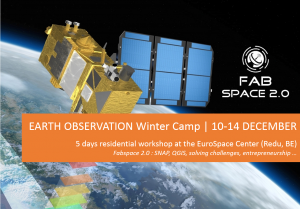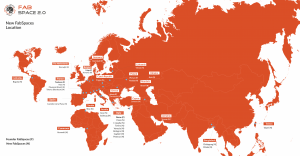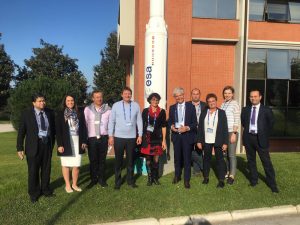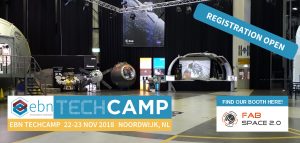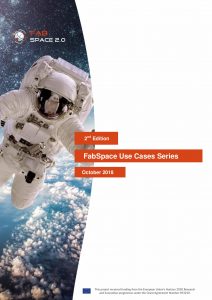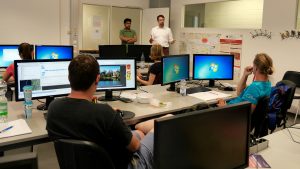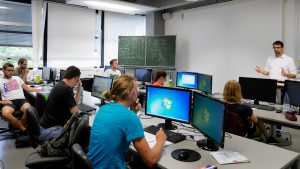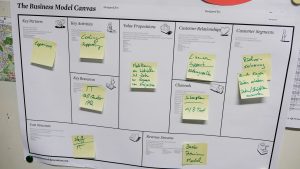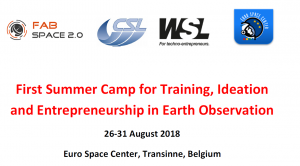
FabSpace 2.0 Liège officially announced the first Summer Camp for Training, Ideation and Entrepreneurship in Earth Observation to be held on the 26th Р31st August 2018 in Belgium. The Summer Camp is coordinated by the Centre Spatial de Liège (CSL) and Wallonia Space Logistics (WSL) in the framework of the FabSpace 2.0 project, and hosted by the Euro Space Center (ESC) in Transinne, Belgium, located in a rapidly-expanding science park that also hosts European Space Agency (ESA), Galileo, and the GALAXIA Business Innovation Centre.
The Camp is structured along in response to the needs identified by the organisers in the following context: the Sentinel satellites developed by the ESA and exploited in the framework of the EEU COPERNICUS Programme constitute a unique world-class armada for observing the Earth. The free-data policy opens new avenues in terms of development of new applications, services and business opportunities. In such a dynamic and rapidly evolving context, it is of the highest importance that students, users, researchers and candidate entrepreneurs get basic training on the techniques through which the Earth Observation (EO) data can be valorised, and brainstorm on possible solutions, based on such data, to challenging user needs.
The Camp will include introductory lectures on the FabSpace 2.0 project, on the Sentinel and COPERNICUS programmes, on remote sensing principles for Earth Observation, and on Geographical Information Systems (GIS’s). Then practical sessions will be organised for familiarisation with the SNAP and QGIS softwares, to be used in brainstorming and problem-solving sessions on proposed application challenges. The Camp is open to students, researchers and candidate business developers interested in the application-oriented exploitation of EO data. The official language of the Camp will be English.
The Camp offers accommodation that is the common bedrooms provided by ESC to its trainees. Interested registrants are welcomed to register and the registration deadline is on August 17th, 2018.
Registration:
Registrations will be made via email to fabspace@wsl.be
Payment of 550 Eur (including taxes) will be made by August 17th , 2018 to :
EURO SPACE CENTER
IBAN : BE 66 3601 0970 1043
BIC : BBRUBEBB
(Bank : ING, Rue du Commerce 16 A 6890 Libin)
Communication: FABSPACE 2018 ‚Äď LAST NAME & FIRST NAME OF PARTICIPANT
The registration fee includes accommodation, meals and coffee breaks at the ESC.
Attendees shall be accepted on a first-come first served basis, after reception of the registration fee.
The maximum number of participants is 25, the minimum is 5.
If the minimum number of participants is not reached by August 17th 2018, full refund of the registration will be made to the registrants.
Invoicing information : https://www.eurospacecenter.be/en/information
To know more about the preliminary programme of the FabSpace 2.0 Liège Summer Camp for Training, Ideation and Entrepreneurship in Earth Observation please see:
FabSpace 2.0 Liège Earth Observation РSummer Camp 2018


